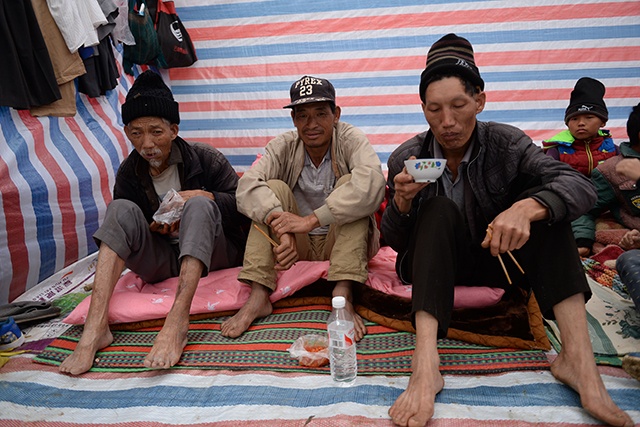
It was the dead of night as 12 men approached a Chinese mining compound near the city of Likasi. Just after 2:30am, they cut a hole in the wire fence and slipped through, carrying AK-47s and metal pipes. Once inside, they moved swiftly through the camp to the security office, where they overpowered and tied up the guards.
The camp was in the heart of the Democratic Republic of Congo’s copper and cobalt industry, but instead of stealing precious minerals, the gang grabbed computers, cellphones, and around $18,500 in cash, according to a report by the local Chinese Enterprises Association shared with The Globe and Mail. By the time local police arrived to help, the robbers had already escaped with their loot.
He Hongwei, a spokesman for the Lualaba Chamber of Commerce, which represents dozens of Chinese businesses in the southern DRC, said the situation in the country increasingly “feels very dangerous.”
“The number of crimes is definitely on the rise,” he added.
Thousands of Chinese workers live in the DRC, mainly in the mineral-rich east and south, part of a wave of emigration and investment across Africa encouraged by Beijing that is only increasing under the Belt and Road Initiative (BRI), President Xi Jinping’s vast trade and infrastructure project.
But with that increased presence overseas comes greater risk, particularly in developing countries, where Chinese citizens may be attractive targets for robberies and kidnapping. Along parts of the BRI, which spans much of Africa and Central Asia, there is also a growing risk of terrorism.
This raises questions over China’s ability to protect its citizens overseas, with the People’s Liberation Army (PLA) maintaining a small footprint outside of East Asia and Beijing wary of anything that smacks of intervention.
To plug the gap, companies and groups like Mr He’s have taken to hiring Chinese private security companies (PSCs) largely staffed and run by former members of the Chinese military and police.
Companies such as Britain’s G4S, which employs 800,000 people and has revenues in the billions, have long provided security for companies operating in dangerous environments. Companies must often navigate a web of regulations to operate, particularly in Africa, which has a long history of mercenary-fuelled conflict.
PSCs, both small and large, typically focus on providing threat assessments and logistics, subcontracting local nationals to work as armed guards or working with local police and military where necessary.
“Efficient private security is not having a lot of people armed, of course you need that, but it’s the last part of the solution, you need local intelligence, knowledge,” said Alessandro Arduino, a principal research fellow at the Middle East Institute of the National University of Singapore.
“Chinese companies often lack an understanding of local culture, which can create its own security problems.”
In a recent report, Paul Nantulya, a research associate at the Africa Center for Strategic Studies, wrote that PSCs “offer the Chinese government tools it can wield to demonstrate its commitment to protecting overseas interests, while at the same time resisting pressure to deploy the PLA more robustly.”
Mr Nantulya says there are 20 Chinese PSCs currently licensed to operate overseas, which employ around 3,200 people. This is greater than the total number of PLA peacekeeping troops deployed overseas, mainly in Africa, according to the Chinese foreign ministry.
Since 2015, Chinese companies have spent more than $10-billion on security annually, a number that is only increasing as more and more companies expand internationally, particularly along the BRI.
All PSCs and private military contractors “are a revolving door between military, police and intelligence,” said Mr Arduino. However, when it comes to Chinese PSCs, the relationship is particularly close. This is true both in the nature of who owns and staffs the companies, and their biggest clients, almost all of whom are state-run enterprises (SOEs).
- The Globe report











